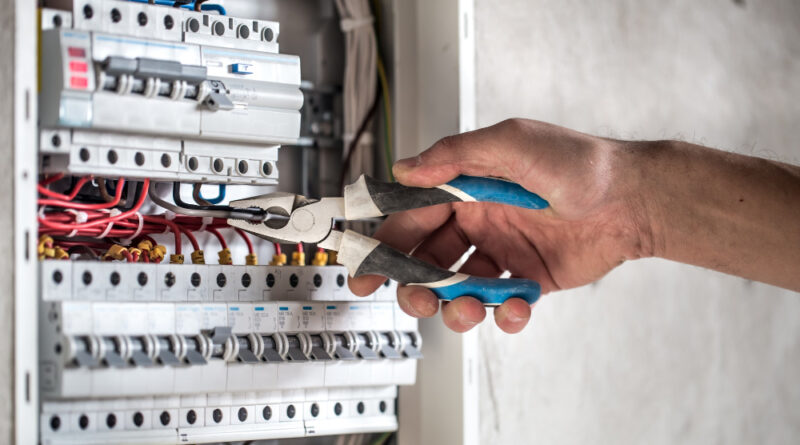Unveiling Electrical Safety Inspections in bhiwadi Protect Your Space
Introduction
Electrical safety is a critical aspect of maintaining a secure and hazard-free environment in any residential or commercial space. In Bhiwadi, ensuring the safety of electrical systems is of utmost importance to protect lives and property. Electrical safety inspections play a vital role in identifying potential risks, preventing accidents, and promoting a safe living or working environment. This article aims to shed light on the significance of electrical safety inspections in bhiwadi and provide valuable insights on how to safeguard your space effectively.
Table of Contents
- Understanding Electrical Safety Inspections
- What Are Electrical Safety Inspections?
- Why Are Electrical Safety Inspections Necessary?
- The Importance of Electrical Safety Inspections
- Ensuring Compliance with Electrical Codes and Standards
- Identifying Potential Hazards and Risks
- Preventing Electrical Accidents and Fires
- Enhancing Energy Efficiency
- The Process of Electrical Safety Inspections
- Initial Assessment and Planning
- Visual Inspection of Electrical Systems
- Testing and Measurement of Electrical Components
- Analysis and Reporting
- Hiring a Professional Electrical Safety Inspector
- Qualifications and Experience
- Reputation and References
- Cost and Timelines
- Common Electrical Safety Issues in Bhiwani
- Outdated Wiring and Overloaded Circuits
- Faulty Electrical Appliances
- Inadequate Grounding and Earthing
- Poor Maintenance and Negligence
- Tips for Maintaining Electrical Safety
- Regular Inspection and Maintenance
- Proper Use of Electrical Appliances
- Educating Occupants on Electrical Safety
- Promptly Addressing Electrical Issues
- Frequently Asked Questions (FAQs)
- What is the recommended frequency for electrical safety inspections?
- Are electrical safety inspections mandatory in Bhiwani?
- Can I perform electrical safety inspections myself?
- How long does an electrical safety inspection usually take?
- What should I do if electrical safety hazards are identified during an inspection?
1. Understanding Electrical Safety Inspections
What Are Electrical Safety Inspections?
Electrical safety inspections involve a comprehensive evaluation of the electrical systems and components in a building. They are conducted to ensure compliance with electrical codes and standards, identify potential hazards, and assess the overall safety of the electrical infrastructure.
Why Are Electrical Safety Inspections Necessary?
Electrical safety inspections are necessary to protect lives and property from electrical accidents, fires, and other hazards. They provide a proactive approach to maintaining electrical systems and help prevent costly damages and disruptions.
2. The Importance of Electrical Safety Inspections
Ensuring Compliance with Electrical Codes and Standards
Electrical codes and standards are put in place to ensure the safe installation and operation of electrical systems. Regular safety inspections help verify compliance with these regulations, reducing the risk of non-compliance penalties and ensuring the well-being of occupants.
Identifying Potential Hazards and Risks
Electrical safety inspections enable the identification of potential hazards such as faulty wiring, overloaded circuits, improper grounding, and outdated electrical appliances. Detecting these risks early allows for timely repairs or replacements, preventing accidents and injuries.
Preventing Electrical Accidents and Fires
Faulty electrical systems can lead to accidents and fires, endangering lives and causing significant property damage. Through inspections, potential issues are addressed promptly, reducing the likelihood of electrical incidents and enhancing overall safety.
Enhancing Energy Efficiency
Electrical safety inspections also contribute to energy efficiency. By assessing the condition of electrical components and identifying areas of improvement, energy wastage can be minimized, leading to lower utility bills and a more sustainable environment.
3. The Process of Electrical Safety Inspections
Electrical safety inspections involve several stages to ensure a comprehensive assessment of the electrical systems.
Initial Assessment and Planning
The inspector evaluates the building’s electrical requirements, gathers relevant information, and plans the inspection process accordingly. This includes considering the age of the electrical systems, previous maintenance records, and any specific concerns raised by the occupants.
Visual Inspection of Electrical Systems
A visual examination is conducted to identify visible issues such as damaged wiring, exposed conductors, loose connections, and signs of wear and tear. The inspector checks electrical panels, outlets, switches, and lighting fixtures for any abnormalities.
Testing and Measurement of Electrical Components
Various electrical tests and measurements are performed to assess the functionality and safety of electrical components. This may include checking voltage levels, ground fault circuit interrupters (GFCIs), insulation resistance, and load testing.
Analysis and Reporting
Based on the findings, the inspector prepares a detailed report highlighting the observations, recommendations, and potential hazards. The report serves as a valuable resource for addressing electrical safety concerns and planning necessary repairs or upgrades.
4. Hiring a Professional Electrical Safety Inspector
When it comes to electrical safety inspections, it is crucial to engage the services of a qualified and experienced professional.
Qualifications and Experience
Look for an electrical safety inspector who possesses the necessary certifications and qualifications. They should have extensive experience in conducting inspections and be well-versed in local electrical codes and regulations.
Reputation and References
Check for reviews and testimonials from previous clients to assess the inspector’s reputation. Request references and contact them to inquire about their experience with the inspector’s services.
Cost and Timelines
Obtain multiple quotes from different inspectors and compare their costs and timelines. However, remember that the cheapest option may not always provide the best quality of service. Consider the inspector’s expertise and track record alongside the cost.
5. Common Electrical Safety Issues in Bhiwani
In Bhiwani, certain electrical safety issues are frequently encountered. Being aware of these challenges can help you take proactive measures to address them.
Outdated Wiring and Overloaded Circuits
Many older buildings in Bhiwani may have outdated wiring systems that are unable to handle the electrical load of modern appliances and equipment. Overloaded circuits pose a fire hazard and may cause electrical failures.
Faulty Electrical Appliances
The use of faulty electrical appliances can lead to electrical shocks, short circuits, and fires. Regular inspection and maintenance of appliances are essential to ensure their safe operation.
Inadequate Grounding and Earthing
Improper grounding and earthing increase the risk of electrical shocks and equipment damage. Ensuring proper grounding and earthing systems are in place is vital to maintain electrical safety.
Poor Maintenance and Negligence
Lack of regular maintenance and negligence in addressing electrical issues contribute to safety hazards. Timely repairs, maintenance, and addressing electrical concerns promptly are crucial for preventing accidents.
6. Tips for Maintaining Electrical Safety
Maintaining electrical safety is an ongoing process that requires attention and proactive measures.
Regular Inspection and Maintenance
Schedule regular electrical safety inspections and maintenance to identify and address potential issues before they escalate. This includes checking for loose connections, frayed wiring, and other signs of wear and tear.
Proper Use of Electrical Appliances
Use electrical appliances as instructed by the manufacturer and avoid overloading outlets or extension cords. Unplug appliances when not in use and keep them away from water sources to prevent electrical hazards.




